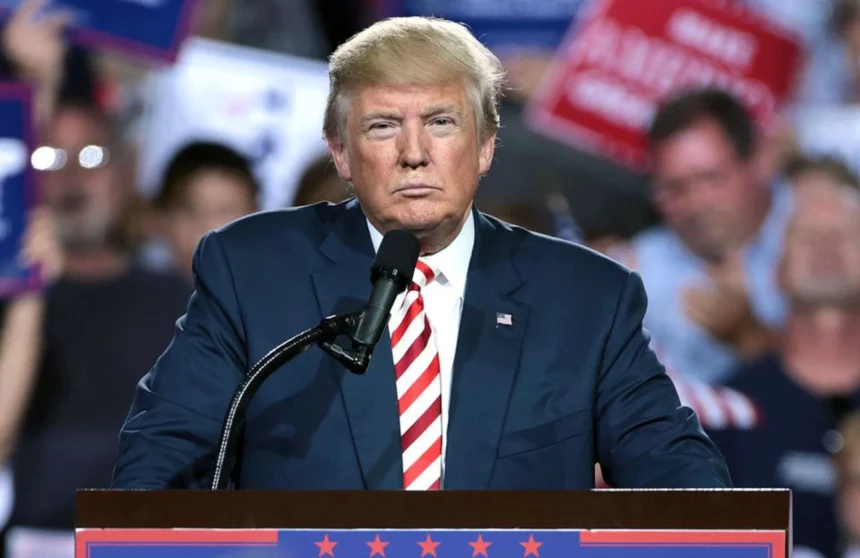In July 2025 something unexpected happened on social media. President Donald Trump took to his Truth Social platform and made a bold threat against comedian and actress Rosie O’Donnell. He said he was “giving serious consideration to taking away her Citizenship.” This comment shocked many people and quickly became a trending topic, not just because of who said it—but because of what it meant.
The situation raised big questions about the limits of presidential power and whether a US. citizen can actually lose their citizenship just like that. And it all started with a video about floods in Texas.
The TikTok That Sparked It All
Just days before Trump’s post, Rosie O’Donnell had posted a video on TikTok. In it, she talked about the severe flooding happening in Texas. The flooding was terrible and many people were hurt or left homeless. O’Donnell didn’t just express sadness—she blamed the Trump administration, saying it had cut funding to government agencies responsible for warning people about disasters like this.
“What a horror story in Texas” she said in the video. “And you know, when the president guts all the early warning systems and the weather forecast abilities of the government, these are the results that we’re gonna start to see on a daily basis.”
That message, which quickly spread across social media clearly didn’t sit well with Trump.
A Feud That Goes Back Years
This wasn’t the first time Donald Trump and Rosie O’Donnell clashed. Their public feud started nearly 20 years ago, back in 2006. At the time, O’Donnell was a co-host on The View, a popular talk show. She criticized Trump for how he was handling the Miss USA pageant. Trump responded with harsh words, and the two have been exchanging insults ever since.
But this new threat—to take away her citizenship—was something entirely different.
Can a President Really Do That?
Trump’s words were shocking but could he actually do it? Most experts say no.
The U.S. Constitution, which is the highest law in the land, has something called the Fourteenth Amendment. It says that anyone born in the U.S. is automatically a citizen. Rosie O’Donnell was born in the United States, so her citizenship is protected by that law.
Law professor Jonathan Turley from George Washington University told the press: “I know of no basis that could be used to strip Rosie O’Donnell of citizenship.”
There’s also a major Supreme Court case called Afroyim v. Rusk from 1967. In that case, the Court decided that a U.S. citizen can’t lose their citizenship unless they choose to give it up on their own.
So even if Trump disagrees with O’Donnell or doesn’t like what she says he doesn’t have the legal power to take away her citizenship.
Rosie Fights Back
Rosie O’Donnell didn’t stay quiet after the post. She shared screenshots of Trump’s comment on both TikTok and Instagram, where she often shares personal updates and political opinions.
On Instagram, she wrote, “The president of the USA has always hated the fact that I see him for who he is — a criminal con man s**** abusing liar out to harm our nation to serve himself — this is why i moved to ireland.”
She also made it clear that she wouldn’t back down. “You want to revoke my citizenship? Go ahead and try. I’m not yours to silence. I never was.”
A New Life in Ireland
Earlier in 2025, just after Trump began his second term as president, O’Donnell confirmed that she had moved to Ireland. She said the political climate in the U.S. felt unsafe, especially for people like her who often speak out.
She’s currently working on getting Irish citizenship through her family background. Her child Clay moved with her. In another TikTok post she said they might come back to the U.S. “when it is safe for all citizens to have equal rights there in America.”
A Loud Message, But No Legal Weight
While Trump’s statement caused a storm on social media and in the news, legal experts agree it doesn’t have real legal force. A president can’t take away someone’s citizenship just because of something they said.
Still, the threat highlights how deep the division between the two public figures has grown. It also shows how online statements—even from former presidents—can raise serious concerns about rights, power and freedom of speech in the U.S.
This moment was more than just a celebrity feud. It touched on core values of the country, like the right to speak freely and the protection of citizenship under the law. And while the story might seem strange it’s also a reminder of how important the Constitution is in protecting all Americans—no matter who they are.




